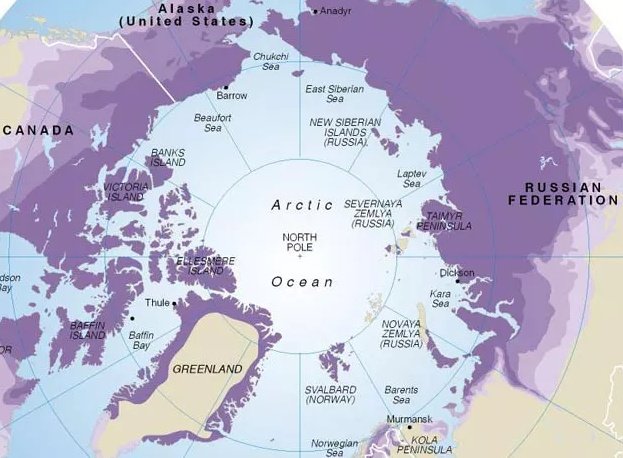Veerabhadran Ramanathan, Scripps Institution of Oceanography, discoverer of role of CFCs in amplifying global warming and destroying the ozone layer
1/
washingtonpost.com/energy-environ…
There is a well-known feedback loop in the Arctic, caused by the reflectivity of ice and the darkness of the ocean.'
2/
washingtonpost.com/energy-environ…
3/
Because of this, Arctic sea ice loss has already increased the warming of the planet as a whole.
4/
washingtonpost.com/energy-environ…
⚠️0.5C extra warming: horror
5/
washingtonpost.com/energy-environ…
A sudden rise of 0.5C would have grave consequences for most life.
6/
washingtonpost.com/energy-environ…
7/
washingtonpost.com/energy-environ…
8/
washingtonpost.com/energy-environ…
When all of the ice in the Arctic is thin and a year old or less, we'll be 'on the verge of a much feared milestone: an entirely ice-free Arctic Ocean in summer.'
When will this occur?
The article downplays the risk here..
9/washingtonpost.com/energy-environ…
True...
10/
washingtonpost.com/energy-environ…
Ok, stop.
Is this right?
11/washingtonpost.com/energy-environ…
👀However:
-in Dec 2018 warming was at 1.2C using a 1750 baseline - journalists refuse to investigate this reality
-would all scientists agree with how often ice-free summers will occur?
12/washingtonpost.com/energy-environ…
This is misleading. It gives no sense that climate scientists know 1.5C could hit before 2029.
13/
washingtonpost.com/energy-environ…
It points to 1.5°C of warming between 2025 - 2030, with 2°C reached by 2045. ⚠️
Studies in the last 10 years show a first ice-free Arctic summer by 2020 - 2035.
14/nature.com/articles/d4158…
'We have investigated 3 approaches to predicting 21st century summer Arctic sea ice loss
time horizons for summer sea ice loss of these three approaches turns out to be roughly 2020, 2030, and 2040 respectively'
15/
agupubs.onlinelibrary.wiley.com/doi/full/10.10…
16/ agupubs.onlinelibrary.wiley.com/doi/full/10.10…
a) 2020-2049
agupubs.onlinelibrary.wiley.com/doi/full/10.10…
b) 60% chance of 2030s
penntoday.upenn.edu/news/Arctic-co…
c) satellite observations suggest 2024- 2033 (but 2040s possible):
ncei.noaa.gov/news/arctic-ic…
17/
🔺 disappearance of sea ice by the 2030s 'and more land ice melt than previously thought' even if the world manages to keep global warming below 2C.
18/
grist.org/article/arctic…
This is perhaps why many scientists don't predict an ice-free Arctic summer before 2030.
19/link.springer.com/article/10.100…



